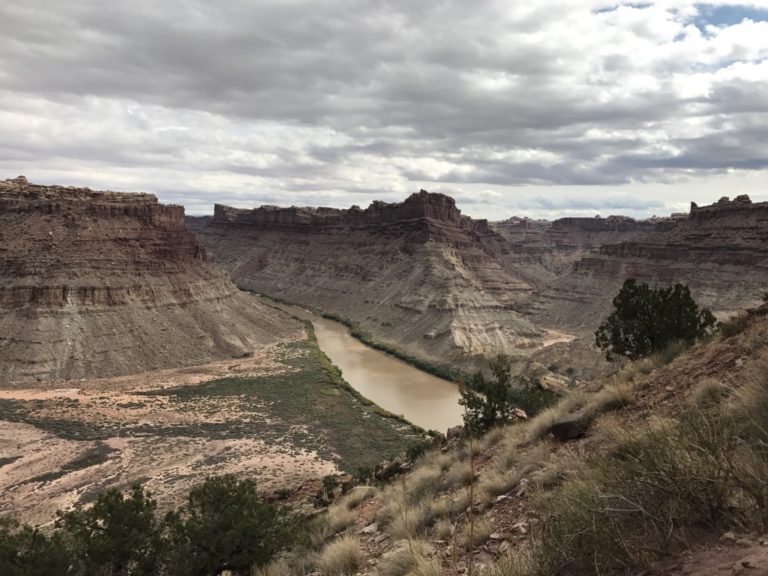Colorado Riverkeeper and Affiliates Play Key Role in John Wesley Powell 150th Anniversary River Expedition
By: ajcarapella

By Rica Fulton, Upper Green River Network, a Colorado Riverkeeper Affiliate
150 years ago, John Wesley Powell and his motley crew traveled into the “great unknown” to explore the Green and Colorado Rivers. In 1869, the rivers were still wild. Colorado pikeminnow grew to be the size of small children and Glen Canyon Dam hadn’t even been thought of. There were no maps or YouTube videos to inform travelers of upcoming whitewater, and rubber rafts wouldn’t be available for years.
Powell returned east to inform settlers itching to migrate west that the Colorado Plateau is an arid land, and forthcoming settlement should be based on available water. However, his advice was greatly ignored as evidenced by the arbitrary rectangular shapes that make up political boundaries in the West today.
Present day, the Colorado River Basin is on the brink of a shortage declaration.
Ceaseless drought and unprecedented population growth have led to a “structural deficit.” The Colorado River system now promises more water than the dwindling snowpack can provide. Shortages of up to 20 percent are predicted by mid-century. Each of the seven Colorado River Basin states is scrambling to develop Drought Contingency Plans and conserve water within the complex legal framework referred to as “the Law of the River,” which serves as the foundation for who gets what.
In lieu of this crisis, a new management paradigm needs to be brought to the forefront of public discourse, so a group of academics from the University of Wyoming, governmental agencies, artists, writers, river-rats, and the Colorado Riverkeeper and Upper Green River Network Affiliate Program have harnessed Powell’s anniversary as a platform to have these discussions. The project is called SCREE—an acronym for the Sesquicentennial Colorado River Exploring Expedition.
Launching in Green River Wyoming on May 24, the 90-day expedition will travel to Lake Mead through whitewater and reservoirs alike—but in modern rubber boats this time.
Colorado Riverkeeper, Affiliates, and Waterkeeper Alliance staff will support the project in many ways: helping with logistics such as transporting rafts around dams, rowing boats, and organizing and participating in events along the way that incorporate local communities and experts. The interdisciplinary project is a perfect way to involve a wide array of interests into the discourse of the Colorado River. Major events will be held in Green River, Wyo., Dinosaur National Monument, Moab, Utah, and Page, Ariz.
Waterkeeper groups in the Colorado River Basin are excited to play a critical role in this project to join discussions and provide valuable outreach to ensure the future of the basin is equitable for river ecosystems, Native American Tribes, rural communities, and everyone who relies on the River.
For more information, contact Rica Fulton, program director of Upper Green River Network, or follow the progress of SCREE on social media:
Twitter: @Powell_150
Facebook: @powell150
Instagram: @powell_15